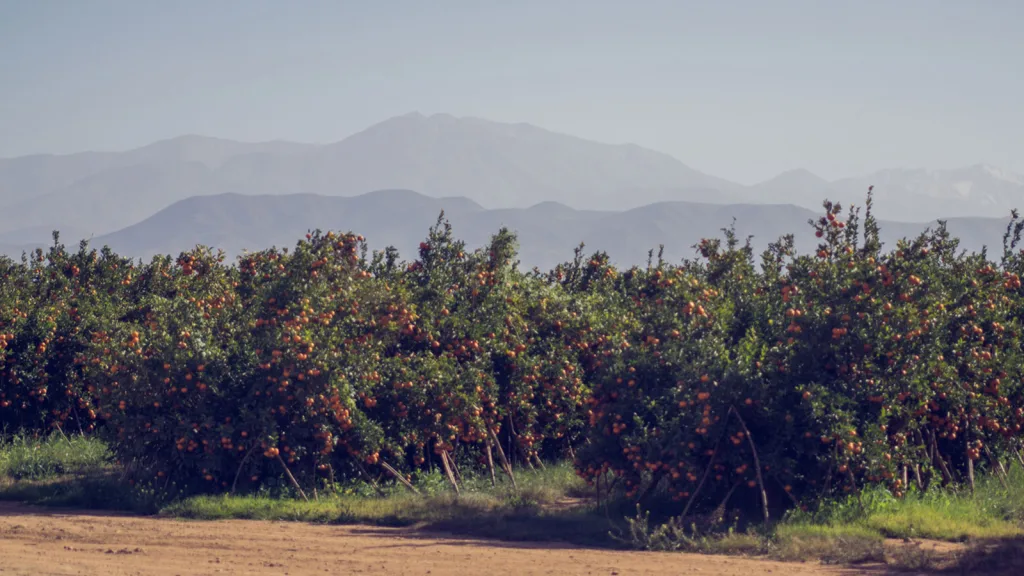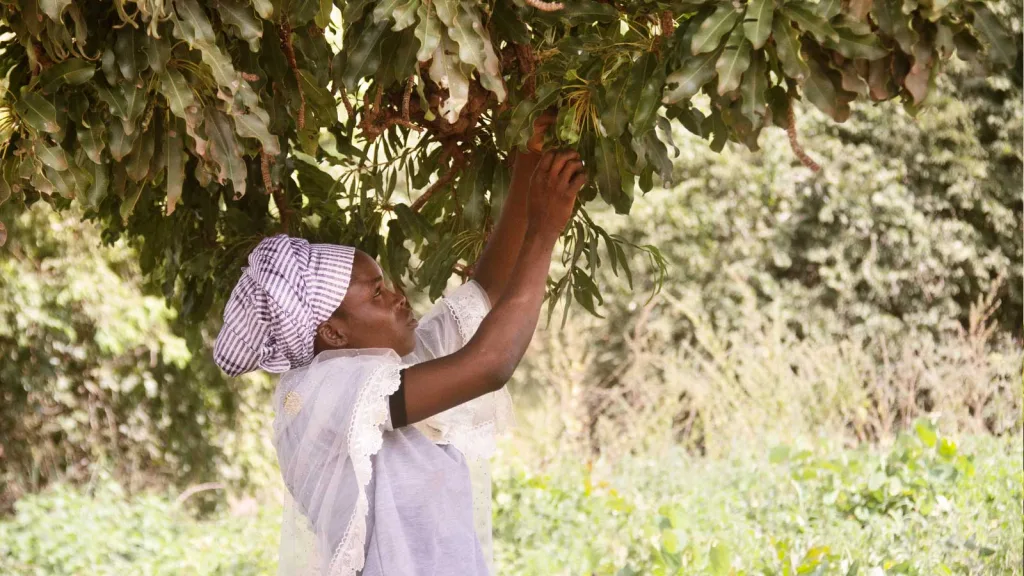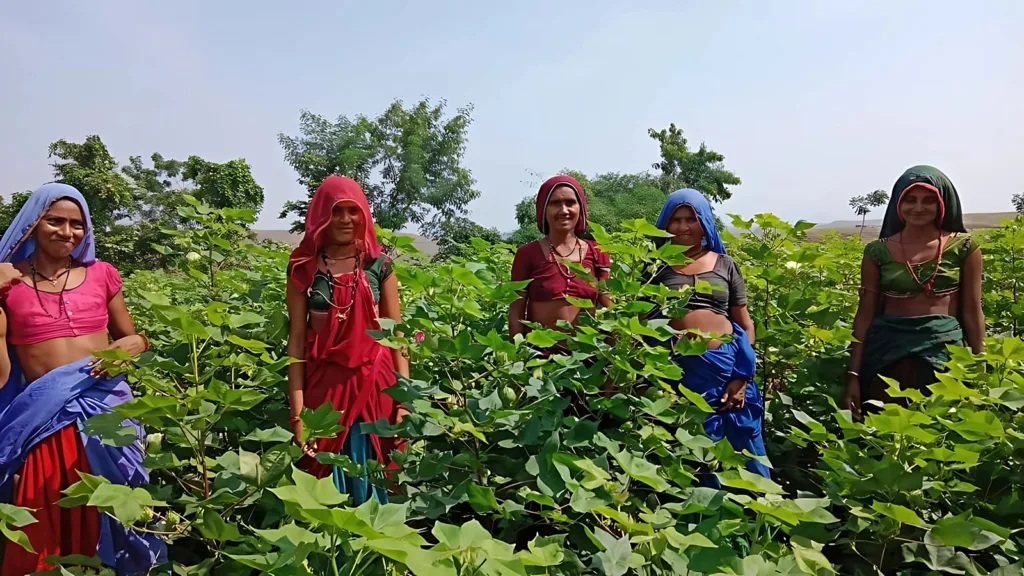This impact story is part of a series featuring companies that are members of One Planet Business for Biodiversity (OP2B)/WBCSD. Through these stories, we aim to showcase our members’ commitment to driving the transition to regenerative agricultural practices, the impact on farmers and the role OP2B plays in supporting this transformation.
As regenerative agriculture gains traction in global food systems, the role of innovative finance becomes increasingly crucial. In an interview, Kaspar Baumann, Partner at Clarmondial, explains how the firm is leveraging financial instruments to transform agricultural supply chains with a focus on regenerative practices. Founded in 2010, Clarmondial is an independent investment advisory firm specialized in mobilizing private capital for the sustainable management of natural resources, particularly in agriculture, fisheries, and clean energy sectors across emerging markets.

Turning capital into regenerative impact
For Clarmondial, regenerative agriculture is not a marketing trend but a core mission. “Environmental sustainability has always been at the heart of what we do,” says Baumann. While the language around “regenerative agriculture” has shifted, the firm’s goal remains clear: to ensure agricultural production preserves and ideally restores natural resources. Clarmondial advances this mission in two ways: by structuring and implementing investment vehicles such as the Food Securities Fund, grounded in a clear theory of change for sustainable agriculture, and by advising leading corporates, including OP2B members, on realigning supply chains for regenerative outcomes. “We combine an understanding of agricultural production and supply chains with expertise in financial instruments,” Baumann explains.
Financing the transition to regenerative agriculture poses unique challenges. Baumann notes that rigid frameworks can slow progress: “One barrier we see is that institutions spend too much time on abstract concepts, delaying the start of pilot projects. But by the time everything is mapped and codified, valuable time has passed that could benefit learning and progress.” Clarmondial instead advocates a pragmatic approach that allows testing financing approaches and collecting feedback through MRV (monitoring, reporting and verification), which is essential when working with dynamic ecosystems and diverse farming systems.
The firm applies clear criteria when selecting projects: long-term buyer commitment, active engagement of supply chain actors, and the ability to measure social and environmental outcomes. To overcome finance bottlenecks, Clarmondial designs structures that mitigate risk. Catalytic capital, more tolerant of early volatility, is often deployed to prove the viability of regenerative models and pave the way for mainstream capital.
Turning investment into impact on farms and ecosystems
Clarmondial’s hands-on approach is evident across more than 20 regenerative agriculture projects worldwide. The investment solutions Clarmondial has developed and launched focus on Latin America, Sub-Saharan Africa, and Southeast Asia, while advisory work also extends across Europe and North America. A new EU-focused investment vehicle is in development, reflecting growing demand for regenerative solutions closer to home.
One notable example is the Food Securities Fund’s investment in a Burkinabé company, gebana Burkina Faso, working with 3,000 smallholder farmers producing organic cashews and mangoes. Capital is channeled from European institutional investors, such as European banks, through the Food Securities Fund into agribusinesses integrating regenerative practices at scale. “We follow the value chain carefully, from farm to first processor to CPGs, ensuring financial tools address real needs on the ground,” Baumann explains.
The financing combines a loan with technical assistance, enabling farmers to adopt practices such as:
- Agroforestry to improve biodiversity and carbon sequestration;
- Crop diversification to enhance soil health and resilience;
- Compost production and application, eliminating the use of chemical fertilizers;
- Biochar production and application to boost carbon capture and soil fertility; and
- Organic pesticides to reduce environmental toxicity.
Together, these measures strengthen biodiversity, soil health, and water retention, while combating desertification in the Sahel. Tree planting and biochar also make significant contributions to carbon sequestration. The project’s impact extends beyond the environment. Five farmer cooperatives have secured organic certification under the updated EU organic certification requirements, fostering independence and resilience. Targeted programs also promote women’s leadership within the cooperatives. “Beyond the financial investment, our goal is to support farmers in building more resilient livelihoods and ecosystems,” Baumann emphasizes.
Read more about the project here.
Clarmondial avoids isolated interventions, instead focusing on supply chains where buyers are committed to sustainability, creating more stable markets for farmers. “Strong trading relationships reduce risks across the chain,” says Baumann. Yet scaling regenerative agriculture within the financial system remains complex, largely due to limited data on returns. “Uncertainty implies risk for the financial sector,” Baumann notes. To bridge this gap, Clarmondial deploys catalytic capital early, using performance data to build investor confidence. “Generating the information needed that allows financial products to be properly priced is fundamental.” In this way, Clarmondial works to not only fund the transition but also to build the ecosystem needed to make regenerative agriculture mainstream.
Collaboration as a catalyst
Clarmondial’s engagement with OP2B reinforces its commitment to advancing regenerative agriculture through collaboration. “Being part of OP2B enables us to work with companies and organizations that are serious about transforming agricultural systems,” says Baumann. The initiative allows Clarmondial to exchange insights with leading corporates and pilot financing models that better align investment with regenerative outcomes. “OP2B keeps us connected to the realities of corporate supply chain actors and shows where innovative financing can make a difference,” Baumann explains.
By working with stakeholders committed to systemic change, Clarmondial strengthens its ability to design and implement financial solutions that are both technically robust and market-relevant. “Ultimately, OP2B enhances our capacity to drive systemic change,” Baumann concludes.
Regenerative agriculture is a critical solution to transform the way we produce food, feed and fiber, benefiting the climate, nature and people. Over the next years, the OP2B coalition will focus on unlocking three strategic key levers to scale up regenerative agriculture: harmonizing measurement, fostering collaborations to support farmers’ transition, advocating for supportive policies to create an enabling environment.
Outline
Related
Content

How Mirova is financing regenerative agriculture at scale
2 July, 2025

Beauty meets biodiversity: how L’OCCITANE Group empowers farmers to act as nature stewards
2 June, 2025

Field to fashion: Inditex’s India project and the future of sustainable supply chains
14 April, 2025
